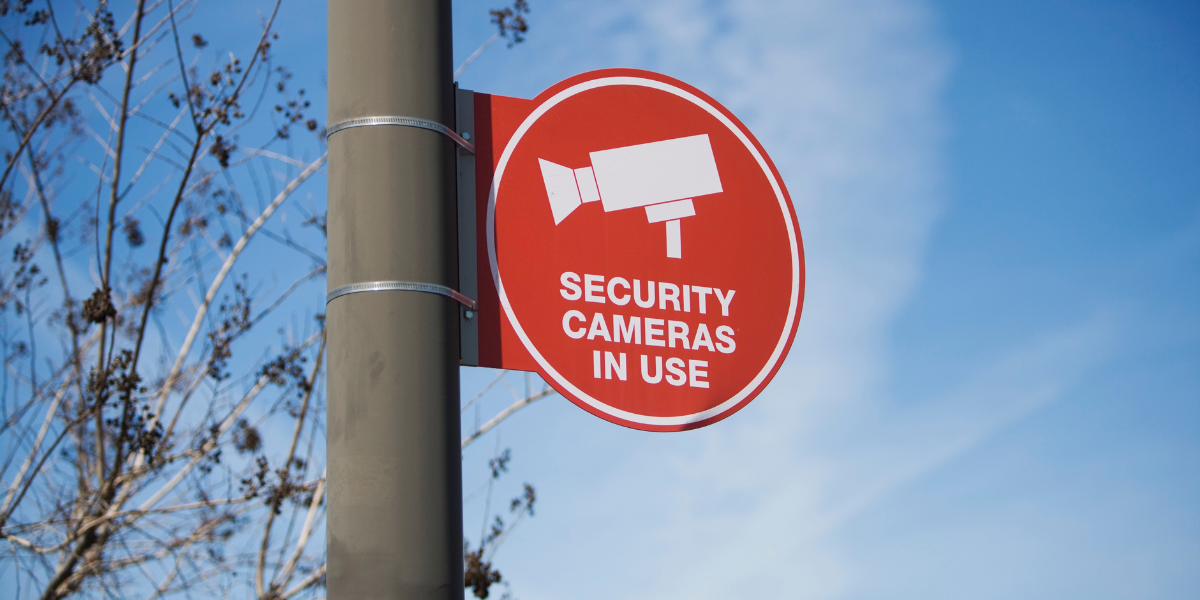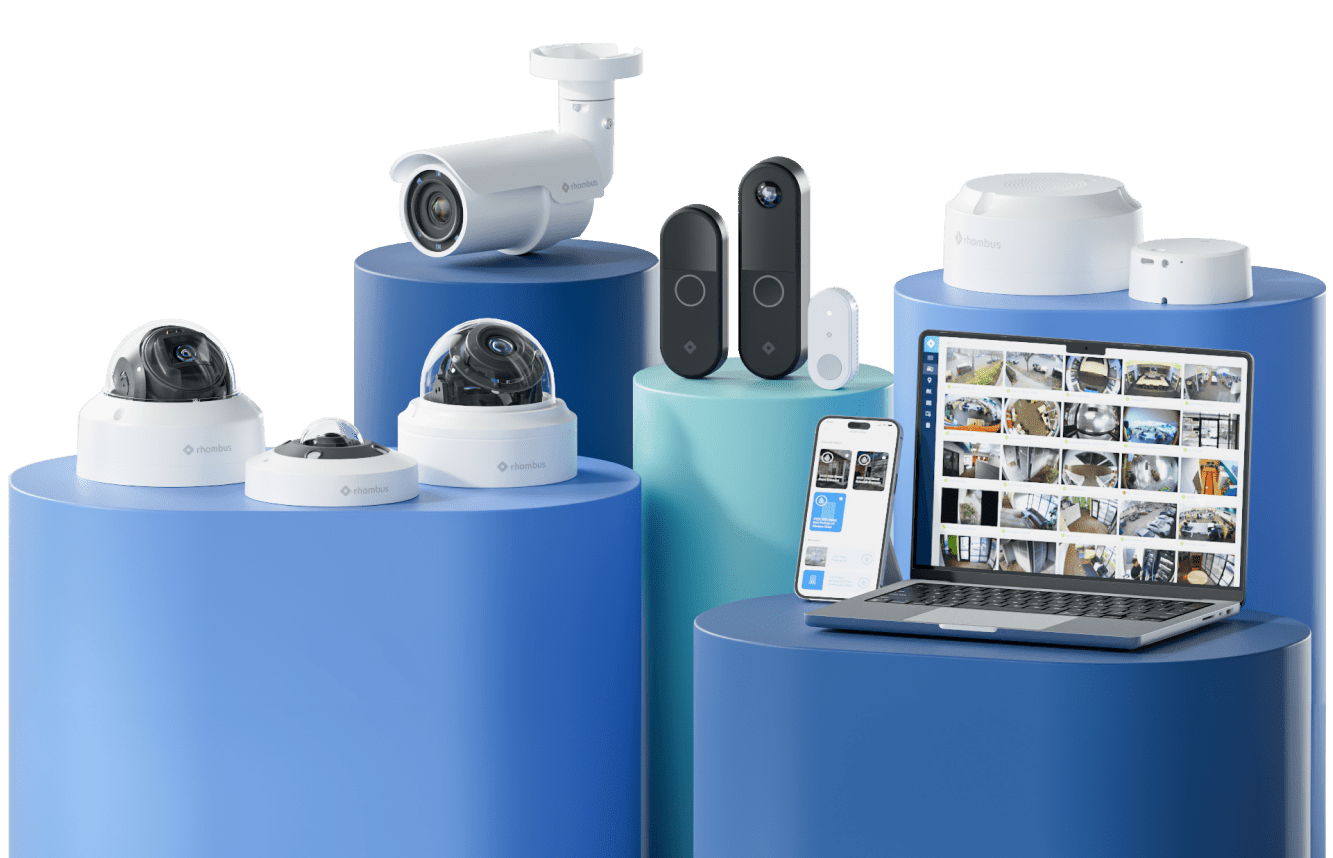
Are You Required to Notify Employees or Customers That You Have Security Cameras?
December 14, 2022

When it comes to video surveillance, one of the most common questions businesses have is whether they need to notify employees and customers about their use of security cameras. The answer depends on multiple factors, including the organization’s location, where the cameras are installed, and the overall use case for the surveillance system.
In this article, we highlight common scenarios businesses encounter, and the recommended best practices for respecting employee and customer privacy rights while using video security.
For details on the legality of video surveillance in the workplace, see the article: Is It Legal to Have Security Cameras in the Office - Everything You Need to Know About Workplace Surveillance Laws.
Regulations on Video Surveillance
Are employers required to notify employees about video surveillance?
In almost all cases, yes—employers must disclose their video surveillance policy to employees, including the location of all security cameras.
It's highly recommended to provide this notice in writing and obtain employees' written confirmation of their understanding and consent to be recorded. Most employers will disclose the presence of security cameras in an employee handbook.
No hidden cameras allowed
Hidden cameras are considered a violation of workplace privacy law in almost all circumstances. Some states outlaw hidden cameras outright; for example, employers in Connecticut are legally required to notify employees of security cameras. Though some courts have found the use of hidden cameras in the workplace legal in highly specific circumstances, employers should disclose all security cameras to employees.
Are businesses required to notify customers about video surveillance?
Depending on local laws, businesses may not need to explicitly disclose the presence of security cameras to customers, but they must always respect “reasonable expectations of privacy.” General video surveillance laws in the U.S. allow monitoring and recording in areas where there is no “reasonable expectation of privacy.” A good rule of thumb is to restrict camera use to public and shared areas where customers don’t expect privacy, and to make security cameras visible.
Making security cameras visible
We recommend installing security cameras in locations where they are plainly visible. Some states have stricter laws around hidden surveillance cameras—for example, New Hampshire, Maine, Kansas, South Dakota, and Delaware require consent to use hidden cameras of any kind.
Is signage required?
As long as cameras are in areas without a reasonable expectation of privacy, and you're only capturing video with no audio, signage is generally unnecessary. You may wish to include signage anyway to cover your bases or deter bad actors.
Review local privacy laws
Apart from a few exceptions, there are no U.S. federal laws prohibiting video surveillance in the workplace. Determining what level of monitoring vs. privacy is acceptable is generally left up to the states.
Some states have stricter laws around hidden surveillance cameras, and in some states, security cameras are illegal anywhere with a reasonable expectation of privacy. This includes dressing rooms, bathrooms, hotel rooms, locker rooms, and more. However, other states permit video surveillance in these areas—only if there is a public notice indicating the presence of security cameras.
This variance makes it crucial for organizations to look to their local privacy laws to remain compliant.
Best practices for respecting customer privacy rights
It’s considered a best practice to provide notice of video surveillance to customers even when it isn’t explicitly required. Doing so clearly removes the expectation of privacy, which allows the customer to make informed decisions and puts the business on firm legal ground.
Regulations on Audio Surveillance
Audio surveillance laws are stricter than video surveillance laws. Many types of audio recordings are illegal, and failure to comply with requirements could lead to charges on the federal level for eavesdropping and wiretapping.
Consent statutes
For audio surveillance to be legal, the recorded parties must be aware that they are being recorded and consent to it. In 38 states, one-party consent is required. This allows a conversation to be recorded if at least one person is aware of it. In 12 states, all-parties consent is required.
If an organization wants to use audio surveillance as part of their security solution, it’s critical to obtain participants’ consent for every piece of audio recorded. For employees, this may be achieved by including notice of audio recording in the employee handbook and obtaining a dated signature. For customers and the general public, businesses must post visible signs informing everyone that audio and video recording is occurring—this is what many retail stores do.
Best Practices
For organizations that want to use video surveillance, the first step is to check with your legal team to make sure that deploying security cameras is appropriate for your work environment and legal in your given locale.
In general, video recording is legal as long as it is done in public areas with no expectation of privacy. Audio recording is often illegal, especially when no party is aware that it is taking place. It's highly recommended that organizations who wish to record audio closely refer to their legal team and local and federal laws.
As a rule of thumb, it's best to be transparent with employees when using cameras and properly disclose their use in any employee handbooks or other company materials given to employees to disclose company practices.
If you have any questions about using security cameras safely and legally or would like to install or upgrade your video surveillance system, please reach out to the Rhombus team at sales@rhombus.com.

Try Rhombus for Free!
See why school districts, cities, and Fortune 500 companies use Rhombus.
Start Trial

